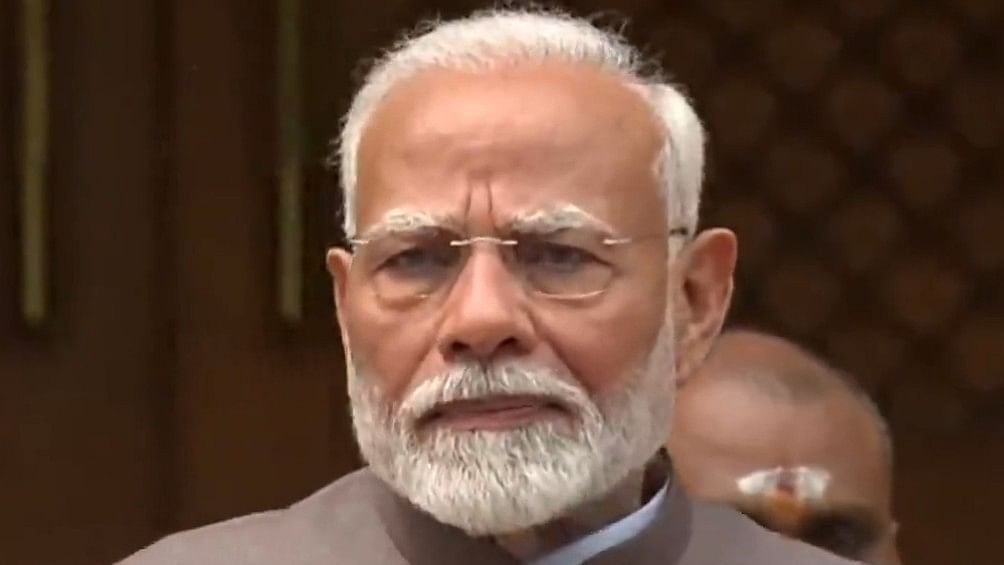
PM Narendra Modi
Credit: X/@narendramodi
The Niti Aayog’s ninth governing council meeting, chaired by Prime Minister Narendra Modi and bearing the theme of Viksit Bharat @ 2047, ended up highlighting polarisation rather than united effort.
Ten chief ministers stayed away from the meeting. Eight chief ministers from Opposition-ruled states, including Karnataka and the southern states, boycotted it, and West Bengal Chief Minister Mamata Banerjee walked out, calling it a boycott.
Apart from past criticism of the body and its functioning, the boycott again brings under scrutiny the role of the Niti Aayog in the larger scheme of governance, federal relations, and development. It was constituted in 2015 as an advisory body by the first Modi-led NDA government, replacing the Planning Commission, and was expected to promote cooperative federalism.
The boycott was occasioned by the states feeling discriminated against in the allocation of resources and projects in the Union Budget. But there is a wider basis and older reason for the estrangement.
The Niti Aayog has always been bound to the Centre and has not had much engagement with the states. Though it was originally expected to provide a proactive role for the states, it has functioned as an advisory body to the Union government.
While the Planning Commission had a say in resource allocations to the states, the Niti Aayog has had no such function. The National Development Council (NDC), a federal forum for deliberations and decision-making, is almost defunct now. Many states feel that they have no say in policies and matters concerning them, and no deliberations are held with them.
The meeting, according to reports, discussed many matters, including the formulation of an investment-friendly charter index for states, setting up of a zero poverty goal, making of demographic management plans, and linking of river grids.
The prime minister called for action on these and underlined the need for skilling and training the youth to make them employment-ready. It was also claimed that the states that attended the meeting enthusiastically participated in the discussions and made many suggestions.
But the important point is that a good part of India was absent, and the meeting became a symbol of distrust between the Centre and many states. Forums and institutions for federal engagement have become weaker, and some have turned dysfunctional. That should be a matter of serious concern.